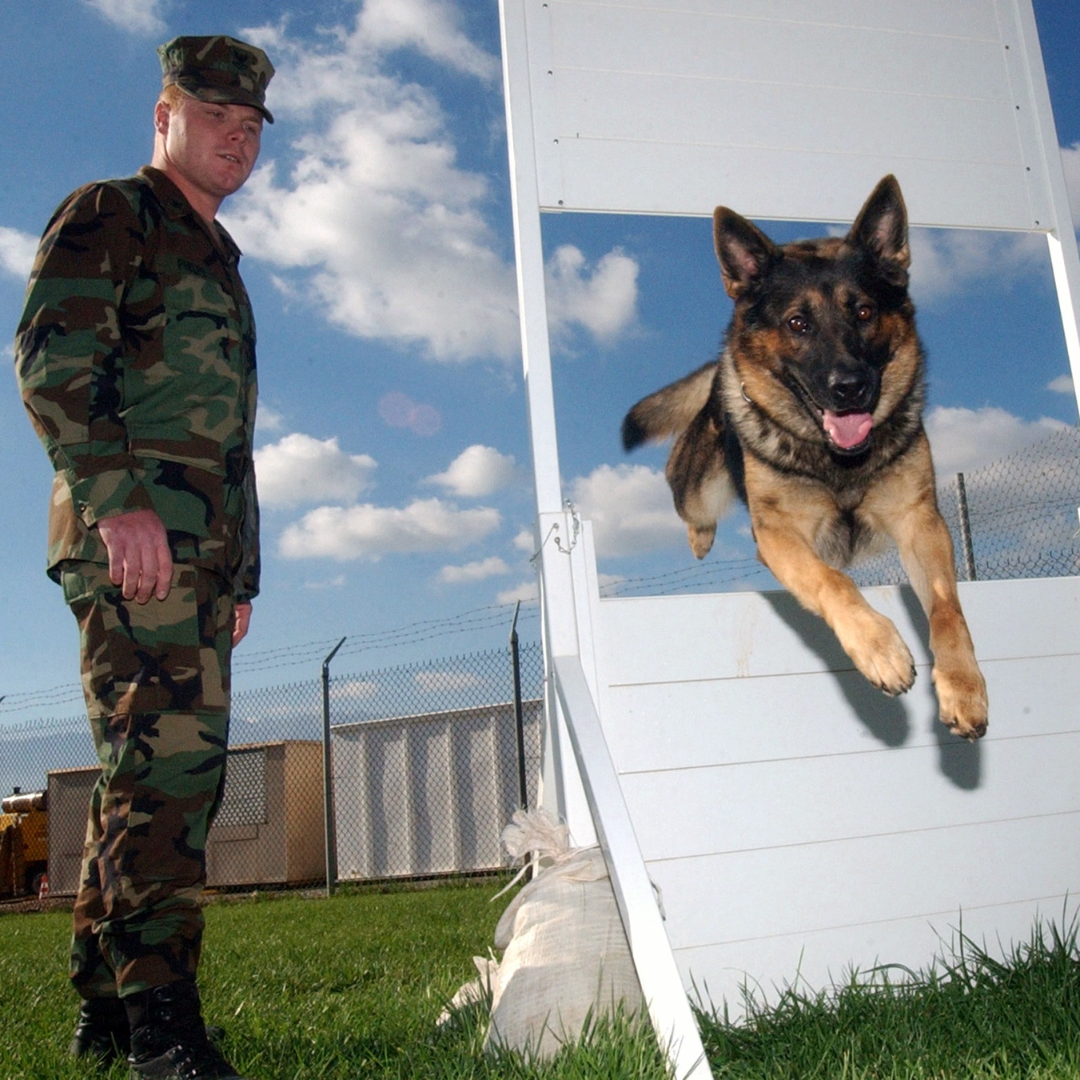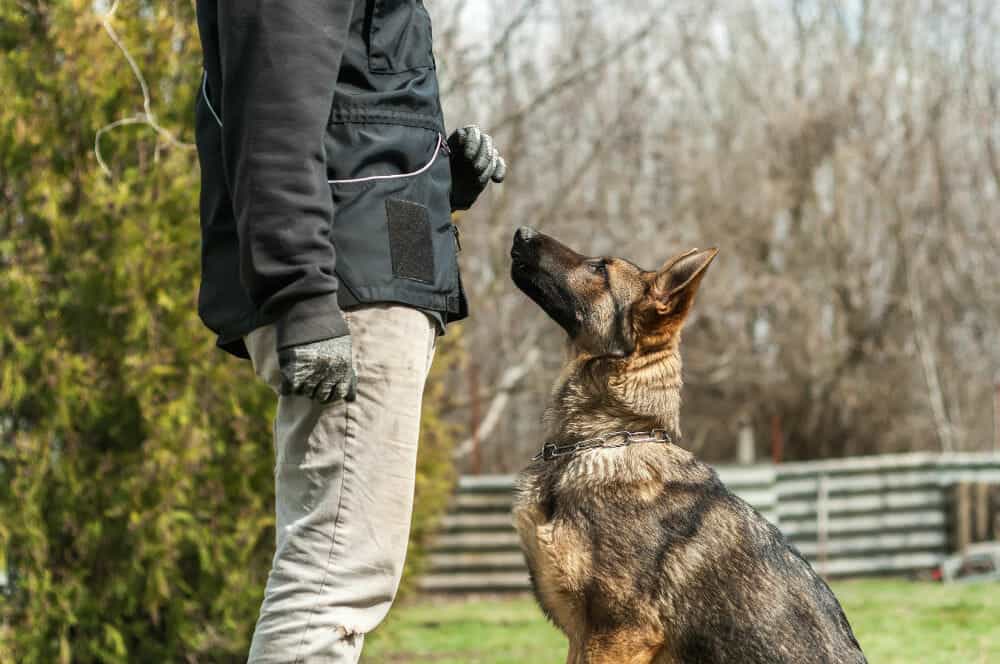Why Dog Training Near Me is Necessary for Your Canine Companion
Why Dog Training Near Me is Necessary for Your Canine Companion
Blog Article
Unlock Your Canine's Potential: Proven Pet Dog Training Strategies for Success
Effective canine training is a nuanced procedure that hinges on understanding canine habits and using medically backed methods. By incorporating favorable reinforcement, developing clear commands, and prioritizing socializing, dog owners can grow a productive connection with their pets.
Recognizing Pet Actions
Comprehending pet dog behavior is essential for efficient training and fostering a positive relationship in between pets and their proprietors. An extensive grasp of canine body movement, vocalizations, and social communications is important for acknowledging their feelings and needs. Pets interact primarily via non-verbal signs; for instance, a wagging tail may indicate enjoyment, while pinned ears can signal fear or entry.

Furthermore, environmental aspects play a considerable function fit a pet's behavior. Modifications in regular, new environments, or the visibility of unknown people can result in anxiety or stress and anxiety in pets. Identifying these triggers makes it possible for proprietors to reduce damaging responses and create proper training techniques.
Ultimately, a deep understanding of dog behavior lays the foundation for successful training methods, improving both actions and the general bond in between the pet and its proprietor. dog training near me. This understanding is indispensable for promoting a well-adjusted, pleased canine companion
Positive Reinforcement Methods
Reliable training counts greatly on favorable support techniques, which have actually been revealed to generate significant results in shaping preferred actions in dogs. This strategy involves compensating a pet dog for displaying specific habits, therefore boosting the possibility that these habits will be duplicated. Incentives can take numerous forms, including treats, praise, toys, or playtime, relying on what inspires the specific pet.

It is essential to gradually terminate incentives as the dog learns the behavior, transitioning to intermittent support. This method keeps the habits with time while avoiding dependence on constant benefits. By concentrating on favorable reinforcement, instructors can cultivate a relying on relationship with their canines, advertising a participating and healthy training atmosphere that boosts total obedience and efficiency.
Developing Regular Commands
A fundamental aspect of successful canine training is the establishment of consistent commands. Uniformity in commands is vital for effective communication in between the dog and the trainer. When commands are uniform, dogs discover to associate particular words with wanted actions, which increases the training procedure and improves understanding.
To develop regular commands, it is necessary that all member of the family use the exact same terms and gestures. If one person utilizes "rest" while another states "sit down," it can develop complication for the pet dog. Select clear, distinct words for commands and make sure everyone entailed in the canine's training abides by these choices.
Enhance commands with regular method, making sure that the pet receives adequate possibilities to react appropriately. When a dog successfully follows a command, prompt favorable support needs to adhere to.
Last but not least, be client. Developing constant commands takes some time and effort. With dedication and clearness, you will help your canine establish a strong understanding of expectations, eventually resulting in a well-behaved friend.
Socializing and Exposure
Mingling a dog is essential for fostering a positive and well-adjusted companion. This procedure includes revealing your pet to a variety of environments, individuals, and various other animals to develop their social skills and adaptability. Early socialization, ideally between the ages of three to fourteen weeks, is vital, as it prepares for a pet's future behavior.
During socialization, aim to offer favorable experiences in various settings, such as parks, active streets, and homes with various other pets. Present your dog to various stimuli, including sounds, sights, and scents, making sure that each experience is rewarding. This direct exposure assists mitigate concern and anxiety, leading the way for a much more resistant pet dog.
Involving in regulated team play sessions with other dogs can likewise enhance social skills, instructing your pet dog suitable interactions and borders. Prioritizing socialization will dramatically contribute to your canine's overall happiness and actions throughout their life.
Overcoming Common Educating Challenges

One more constant concern is diversion. Canines might battle to concentrate in unfamiliar or hectic settings. Slowly desensitize your pet to interruptions by beginning training in a quiet environment and gradually presenting more stimulations as they come to be proficient (Dog training). Favorable reinforcement techniques, such as treats and praise, can preserve inspiration and emphasis.
Furthermore, behavior problems like jumping or too much barking can come to be frustrating. Address these by teaching alternative behaviors, such as sitting comfortably when greeting guests. Uniformity and persistence are vital; enhance desired behaviors constantly and avoid scolding, which can bring about complication.
Last but not least, recognize that each canine is one-of-a-kind, and training timelines might vary. Tailor your method to your dog's specific requirements, and look for specialist support if essential. With perseverance and the appropriate approaches, overcoming these obstacles can cause a well-trained, happy canine buddy.
Final Thought
To conclude, opening a pet dog's prospective demands a thorough strategy that integrates an understanding of canine behavior, the application of favorable reinforcement techniques, and the establishment of consistent commands. Early socializing and direct exposure to varied settings better improve a pet dog's flexibility and confidence. By attending to usual training difficulties with tailored techniques and persistence, a cooperative and harmonious partnership in between pet dog and trainer can be fostered, ultimately leading to a mannerly buddy efficient in flourishing in various circumstances.
Efficient pet training is a nuanced procedure that hinges on understanding canine habits and employing medically backed strategies.Understanding dog habits is important for efficient training and cultivating a positive partnership in between canines and their owners.Reliable training counts heavily on positive reinforcement methods, which have been shown to produce click here now significant outcomes in shaping preferred habits in dogs. When commands are consistent, pet dogs learn to connect specific words with wanted habits, which increases the training procedure and boosts understanding.
In final thought, opening a canine's potential necessitates a thorough helpful site technique that integrates an understanding of canine behavior, the application of positive reinforcement strategies, and the establishment of consistent commands.
Report this page